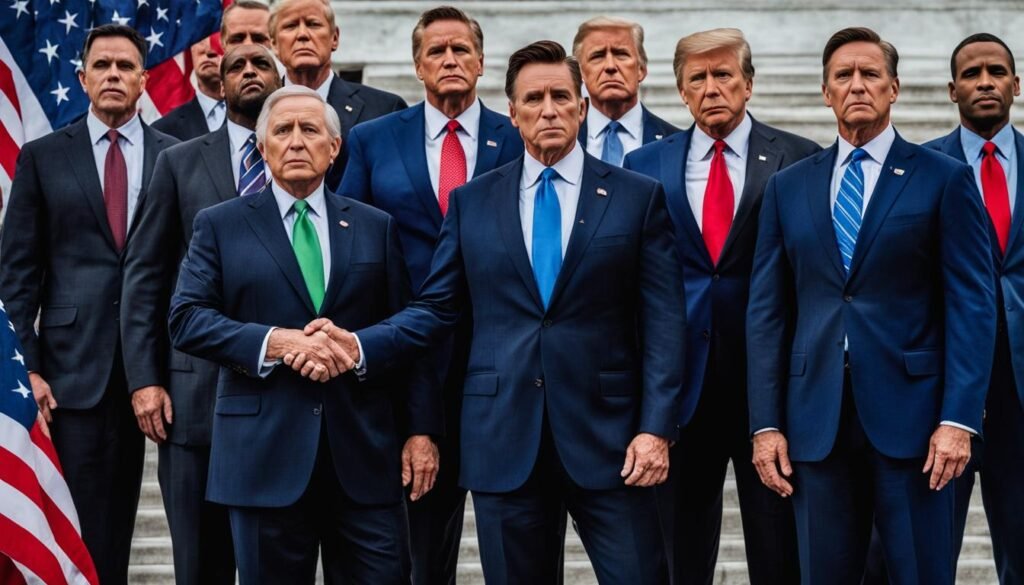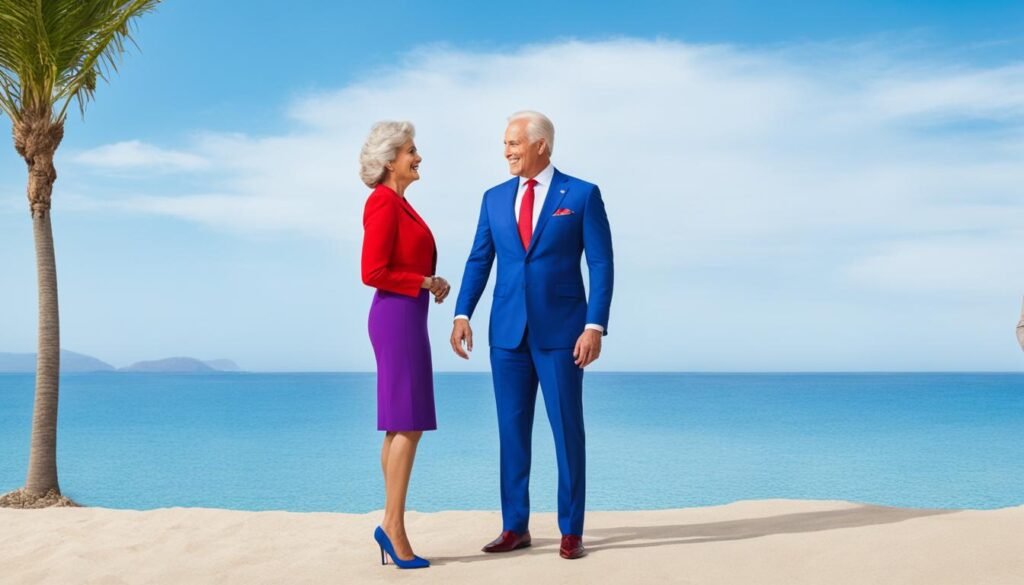Greetings! Today, I am going to delve into the intriguing world of the House Freedom Caucus. Have you ever wondered about this influential conservative group in the United States House of Representatives? Well, let’s find out!
The House Freedom Caucus is a congressional caucus comprised of Republican members of Congress. Established in 2015 by a group of conservative representatives, their primary objective was to ensure their principles and values were adequately reflected. Their mission is centered around promoting limited government, fiscal responsibility, and individual liberty. Since its inception, the House Freedom Caucus has played a pivotal role in shaping policies and advocating for conservative reforms within Congress.
Key Takeaways:
- The House Freedom Caucus is a conservative group in the United States House of Representatives.
- It was founded in 2015 by conservative representatives who felt their principles were not well represented.
- The caucus advocates for limited government, fiscal responsibility, and individual liberty.
- With approximately 30 Republican members, the House Freedom Caucus has influenced congressional policy.
- Their opposition to certain bills and commitment to conservative values has resulted in gridlock and division within the Republican Party.
Purpose and Ideology of the House Freedom Caucus
The House Freedom Caucus, comprised of around 30 Republican representatives, stands firm in its commitment to conservative values and limited government. The caucus staunchly advocates for lower taxes, reduced government spending, and deregulation.
Their ideology centers around the belief in free-market principles and individual liberty. They champion the idea that a smaller government allows for greater personal freedom and economic prosperity. By opposing legislations that they perceive as expanding the size and scope of the federal government, the Freedom Caucus actively aims to protect the principles they hold dear.
With a focus on fiscal responsibility, the Freedom Caucus has been actively involved in debates surrounding healthcare reform, immigration policies, and government oversight. By challenging the status quo and promoting their conservative principles, the House Freedom Caucus adds a unique perspective to the political landscape, carrying a significant influence within the Republican Party.

Impact and Role of the House Freedom Caucus
The House Freedom Caucus, comprising Republican members of Congress, has played a significant role in shaping congressional policy and influencing the Republican Party. By opposing certain bills and pressuring for conservative principles to align with legislation, the caucus has at times caused gridlock and division within the party. With their tactics of withholding support, certain legislation has either failed or required compromises to gain their approval. As a result, the House Freedom Caucus has emerged as a driving force behind conservative values within the Republican Party.
The House Freedom Caucus: Influencing Congressional Policy
The House Freedom Caucus has exerted remarkable influence on congressional policy by opposing bills and shaping legislation to align with their conservative principles. Their commitment to limited government and fiscal responsibility has made them a strong voice within the Republican Party, allowing them to champion their core values effectively. As a result, the caucus has proven instrumental in shaping the direction of policy discussions and debates, fostering an environment where conservative reforms are diligently pursued.
Division and Gridlock within the Republican Party
The opposition strategies employed by the House Freedom Caucus have sometimes led to division and gridlock within the Republican Party. Due to their unwavering commitment to conservative principles, the caucus has used tactics like withholding support for bills that fail to meet their criteria. Consequently, bills that do not align with the caucus’s agenda have faced significant challenges, necessitating compromises or resulting in legislative failures. While these actions have occasionally caused friction within the party, they exemplify the caucus’s dedication to advancing their conservative ideology.
A Driving Force for Conservative Values
The House Freedom Caucus has emerged as a prominent driving force for conservative values within the Republican Party. By leveraging their influence and numbers, caucus members have successfully championed limited government, individual liberty, and fiscal responsibility. Their commitment to these core values has resonated with many Republicans, leading to a broader acceptance and adoption of conservative principles throughout the party. As a result, the House Freedom Caucus continues to shape the ideological landscape of the Republican Party and play a pivotal role in determining its future direction.

Through their impact on congressional policy, division within the Republican Party, and dedication to conservative values, the House Freedom Caucus has solidified its position as a key player in American politics. With a focus on promoting limited government, fiscal responsibility, and individual liberty, the caucus remains at the forefront of advancing conservative reforms and shaping the Republican Party. As the political landscape evolves, the role and influence of the House Freedom Caucus will undoubtedly continue to be felt for years to come.
Goals and Future of the House Freedom Caucus
The House Freedom Caucus is driven by a clear set of goals and aspirations. With an unwavering commitment to conservative principles, the caucus aims to advance its ideology and promote policies that align with its purpose.
At the core of the House Freedom Caucus’s ideology is the belief in limited government. Members of the caucus strongly advocate for fiscal responsibility, recognizing the importance of reducing government spending and minimizing the size and scope of federal programs. This commitment to limited government is aimed at safeguarding individual liberty and promoting free-market solutions.
The caucus has shown a particular interest in reforming entitlement programs, recognizing the need for sustainable solutions that address long-term issues. By pushing for reforms in this area, the House Freedom Caucus aims to ensure the financial stability and integrity of these programs while respecting the principles of limited government.
Reducing Government Spending and Promoting Free-Market Solutions
Another crucial goal of the House Freedom Caucus is to advocate for a reduction in government spending. Members believe that excessive government expenditure hinders economic growth and stifles individual freedom. By championing lower taxes and advocating for reduced government spending, the caucus seeks to create an environment that encourages private sector growth and fosters individual prosperity.
In addition, the House Freedom Caucus strives to promote free-market solutions. The caucus firmly believes in the power of market forces and strives to remove unnecessary regulations and barriers that hinder innovation and economic competition. By advocating for free-market principles, the caucus aims to create an environment that allows individuals and businesses to thrive and flourish.
The future of the House Freedom Caucus will be shaped by several key factors, including the political landscape and the priorities of its members. As the caucus evolves, it will continue to push for conservative reforms and promote its principles within the Republican Party. By advocating for limited government, fiscal responsibility, and individual liberty, the House Freedom Caucus aims to influence policy decisions and advance its ideological agenda.

Conclusion
The House Freedom Caucus has a rich history within the Republican Party, with its members advocating for conservative principles and playing a significant role in shaping policy within Congress. With a commitment to limited government and fiscal responsibility, the caucus has emerged as a strong voice within the party, driving the conversation on important issues.
Comprised of around 30 Republican representatives, the House Freedom Caucus has made its mark on the political landscape, pushing for lower taxes, reduced government spending, and deregulation. They have consistently opposed legislation that expands the size and scope of the federal government, championing free-market principles and individual liberty.
As a result of their influence, the House Freedom Caucus has often prompted division and gridlock within the Republican Party. Through strategic tactics and the withholding of support for bills that do not align with their conservative values, they have shaped the legislative landscape and necessitated compromises to garner their endorsement.
Looking ahead, the House Freedom Caucus will continue to advocate for their conservative goals within Congress. They seek to reform entitlement programs, reduce government spending, and promote free-market solutions. With their commitment to advancing limited government, fiscal responsibility, and individual liberty, the caucus will likely maintain its influence on congressional policy and the trajectory of the Republican Party.
FAQ
What is the House Freedom Caucus?
The House Freedom Caucus is a congressional caucus in the United States House of Representatives.
How many members are in the House Freedom Caucus?
The House Freedom Caucus currently has around 30 members, all of whom are Republican representatives.
What does the House Freedom Caucus stand for?
The House Freedom Caucus advocates for limited government, fiscal responsibility, and individual liberty.
What does the House Freedom Caucus believe?
The House Freedom Caucus believes in lower taxes, reduced government spending, and deregulation.
What is the impact and role of the House Freedom Caucus?
The House Freedom Caucus has been influential in shaping policy and pushing for conservative reforms in Congress.
What are the goals and future of the House Freedom Caucus?
The House Freedom Caucus aims to advance conservative principles and policies in Congress.







